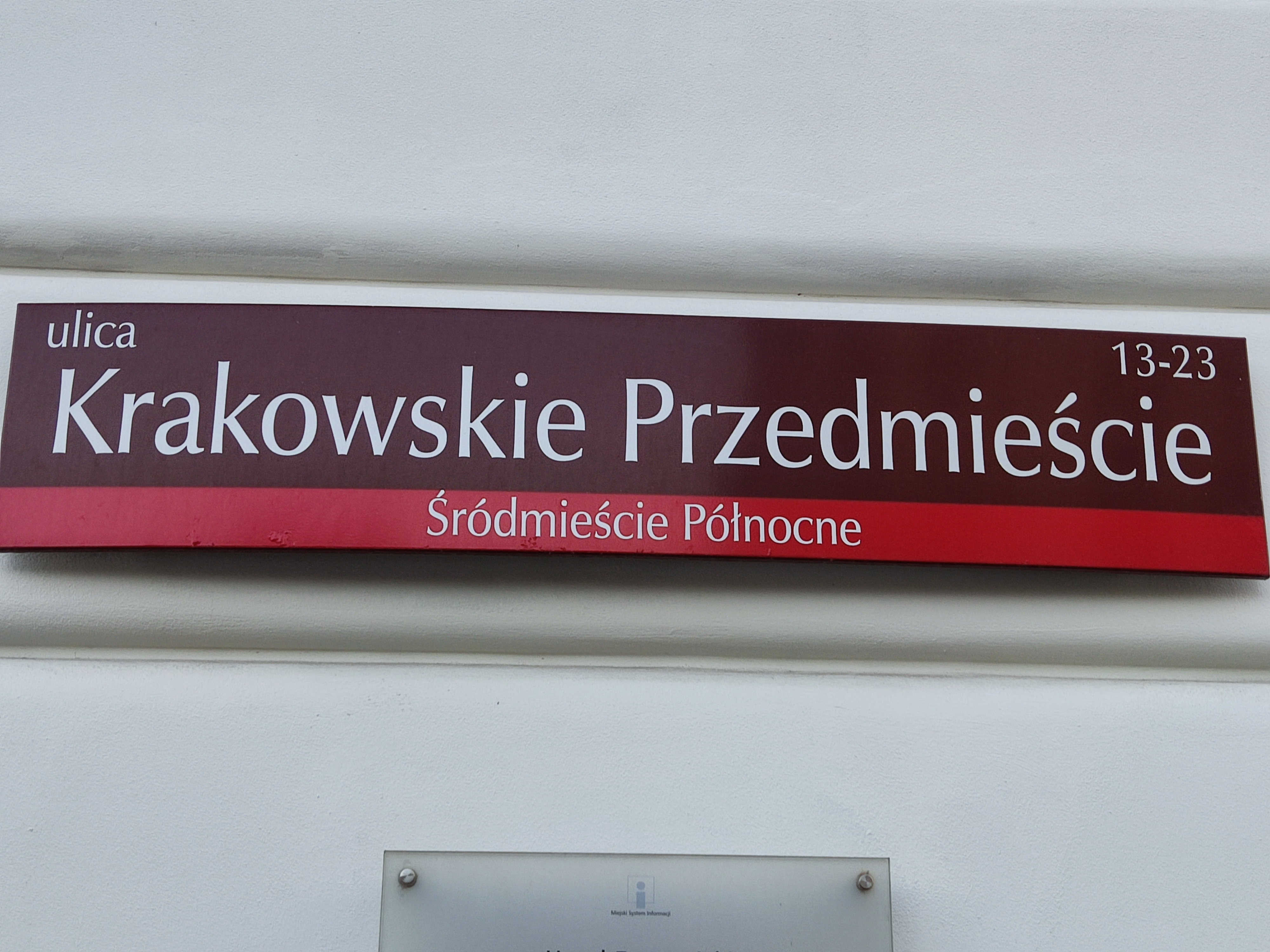Property tax in Poland

Property tax in Poland
If you have an apartment, house, plot or garage in Poland, you must pay property tax. This is the so-called local tax - all property owners are required to pay it. Real estate is - in accordance with the provisions of the Civil Code - land, a building permanently attached to the land, or parts of such buildings if, in accordance with specific provisions, they constitute a separate piece of property from the land.
If you have an apartment, house, plot or garage in Poland, you must pay property tax. This is the so-called local tax - all property owners are required to pay it. Real estate is - in accordance with the provisions of the Civil Code - land, a building permanently attached to the land, or parts of such buildings if, in accordance with specific provisions, they constitute a separate piece of property from the land.
The issue of real estate tax is regulated by the Law of January 12, 1991 on local taxes and fees. The size of the real estate tax rate is determined by the decision of the commune or city council to determine the size of the real estate tax rate. However, in accordance with the Law on Local Taxes and Fees, these rates cannot be higher than the upper limits of fixed amounts for a given tax year.
Maximum rates change every year; the price index for consumer goods and services (inflation rate) is taken into account. The upper limits of rates are announced by the Minister of Finance in the Official Journal of the Republic of Poland “Monitor Polski”.
We'll tell you when you owe and how to pay your property taxes.
What is taxable
• land that is not agricultural land or forest,
• buildings or parts thereof,
• apartments or office premises that are legally allocated, that is, they have a land register,
• buildings or parts thereof related to business activities.
Taxpayers
• owner,
• independent holder, that is, one who uses the land as an owner, although he is not the owner,
• permanent user of land in public ownership (state or municipal),
• owner of state property on the basis of a concluded agreement or without it.
Who doesn't pay property taxes
If you are not in business, you do not pay property taxes for:
• outbuildings or parts thereof, which:
o you use it for forestry or fishing activities,
o they are located on farm lands and are used only for agricultural activities,
o you are engaged in special agricultural production, for example, growing in greenhouses, keeping apiaries, breeding and raising fur animals,
• land and buildings included in the register of monuments, if you maintain and preserve them in accordance with the Law on the Protection of Monuments,
• heathlands, ecological grasslands, forested and drylands,
• land plots, if you are a member of an agricultural production cooperative and meet at least one of these conditions:
o you are at retirement age,
o disabled group II,
o you are a person with a significant or moderate disability,
o you are a person unable to work on a farm or unable to live independently,
• located in a family garden:
o earth,
o garden gazebos and utility buildings with a built-up area of up to 35 square meters, for example, a tool shed, a wood shop,
o buildings that serve as garden infrastructure.
The commune in which you own property may introduce additional tax breaks. Check on its website to see if you can pay less or not pay at all. There are also benefits and incentives that are regulated by separate laws. They refer to churches and religious associations carrying out economic activities in the territory of special economic zones, land plots and buildings that are part of the property intended for the construction of public roads.
When does a tax liability arise and expire?
The tax liability arises from the first day of the month following the month in which the event giving rise to ownership of the property or its components (which is the result of ownership, proprietary possession, perpetual use or dependent possession) occurs. If the tax liability is connected with the existence of a building or its parts, it arises on January 1 of the year following the year in which construction was completed or in which the use of the building or its parts began until their final finishing.
That is, the tax liability arises from the first day of the month following the month in which the circumstances justifying the tax liability arose. Therefore, in order for a tax liability to arise, you must first purchase real estate or become its co-owner or owner (for example, if it was a gift).
The tax obligation expires after a month when the circumstances justifying this obligation have ceased.
Actions and documents
Property tax taxpayers submit information or declarations to the commune depending on the location of the taxable objects (i.e. land, buildings, etc.). Sample forms are determined by decree of the Minister of Finance.
If property or a construction project is jointly owned (or owned) simultaneously by an individual and a legal entity or organizational unit (including a company) that does not have a legal entity, then the individual submits a property tax return and pays tax on the basis existing legal entities. In this case, the individual does not receive a decision on the amount of tax.
The obligation to submit information on real estate and construction projects and property tax returns also applies to taxpayers who benefit from benefits in accordance with the Law On Local Taxes and Fees (both legislative and introduced by resolution of the commune council):
1. individuals provide information about real estate and construction projects within 14 days from the day when circumstances arose justifying the occurrence or expiration of a tax liability or an event leading to a change in the amount of taxation,
2. legal entities and organizational units, including unincorporated companies, file a property tax return before January 31 of the tax year, and if the tax liability arose after this date - within 14 days from the date of occurrence of circumstances justifying the occurrence or termination of the tax liability , or from the moment of occurrence of the event that led to a change in the amount of taxation.
Information on real estate and construction projects, as well as property tax returns, can be submitted online.
Information and declarations, as well as attachments to declarations and information, must be submitted using existing forms, samples of which are determined by a decision of the commune council. They can be submitted electronically.
That is, real estate tax payers are required to provide information about real estate. Within 14 days from the date of occurrence of circumstances justifying the emergence or termination of a tax liability, individuals must provide information about real estate and construction projects (IN-1). Legal entities file property tax returns. The relevant declarations and information are provided to the competent tax authority.
What you need to prepare to pay property taxes
Prepare Form IN-1 Information on Real Estate and Construction Projects.
Along with Form IN-1, prepare the following attachments:
• ZIN-1, in which provide data on taxable objects that are subject to taxation.
• ZIN-2, in which provide data on tax-exempt objects.
• ZIN-3, where you provide information about other co-owners if you are filing one joint IN-1 form, such as when you file this form with your spouse.
Forms can be picked up at the commune office or downloaded from the website.
What do you need to do next?
1. Complete Form IN-1 Information on Real Estate and Construction Projects along with the relevant attachments. Details can be found in the “What you need to prepare” section.
2. Send to the commune. Details can be found in the “Where to submit documents” section.
3. Wait for a decision on the amount of tax. Details can be found in the section "How long will you wait"
4. Pay the tax. Details can be found in the sections: “How much to pay for real estate”, “When and where to pay”.
If you have plots in different communes, submit separate information IN-1 in each commune. If the plot or your house and plots are in the same commune, make one form. If you are a co-owner of the property, you can submit the form yourself or together with other co-owners.
When to submit documents
Up to 14 days from the date when:
• you are buying real estate,
• you start using it as the owner,
• you get the right to perpetual use,
• the tax amount changes because, for example, you sell part of the land.
If you complete a home, expand it (such as adding a floor), or use it before it's completed, you'll pay tax next year. Submit your property information form by January 15th of the following year.
If you still own the same house, apartment or land in subsequent tax years, you do not file information.
Where to submit documents
To the commune office where your house, your apartment or your plot is located. Typically this can be done in three ways:
• take the documents to the commune,
• send by mail,
• send via the Internet, for example via ePUAP.
Submit IN-1 information even if you are tax exempt.
How much to pay for real estate
The amount of tax depends on:
• area of land plots and buildings or parts thereof,
• the tax rate in force in the commune.
The commune sets tax rates, which cannot be higher than the maximum rates (provided by law).
Check local taxes and information at the commune office or on its website.
Don't calculate your taxes yourself. Every year the commune sends you a decision on the amount of tax.
If the annual tax is below PLN 9.80, you will not receive a decision and will not pay tax at all.
How to calculate property tax?
The total property tax amount will depend on several factors, including whether the property has a building permanently attached to it and whether the building was intended partially or entirely for commercial purposes. The simplest situation occurs when someone is only the owner of the land - all they have to do is multiply the bid (announced by the commune or city council) by the number of square meters.
However, the situation becomes more complicated when someone owns a private home. It is necessary to calculate the amount of liability for the land itself and separately for the building itself. Then you need to add both amounts. It is even more difficult if part of the building is intended for commercial purposes - in such a situation, in fact, three different rates must be applied for each area.
However, it is worth remembering that in the case of individuals, the tax amount is still calculated by the commune, which is obliged to provide the property owner with an appropriate decision.
Until when do you have to pay tax?
Individuals pay tax in four installments. The deadline for paying the first part of the tax is March 15, the second is May 15, the third is September 15, the fourth and last is November 15. It is important to note that if the tax amount does not exceed PLN 100, the tax must be paid in full by March 15 of the given year. Other taxpayers, including legal entities, pay tax in monthly installments proportional to the period of tax liability. The tax payment deadline in this case is the 15th of the month. Tax for January is due by January 31st.
In the case of individuals, we emphasize that the amount of tax liability is determined by the tax authority (city mayor) competent at the location of the property. In turn, other taxpayers themselves determine the amount of tax on the basis of regulations.
If the taxpayer received a decision after the expiration of the installment payment period, he must pay the installment within 14 days from the date of receipt of the decision on determining the amount of tax.
When and where to pay
until March 15,
until May 15,
until September 15,
until November 15th.
If the tax for a given year is less than PLN 100, pay the entire amount by the due date for the first installment.
If you receive a decision after the fee payment deadline, pay the fee within 14 days of receiving the decision. The commune cannot shorten this time.
You can pay the tax:
• at the commune cash desk,
• transfer to the account of the commune,
• a person appointed by the commune (collector).
How long will you wait
The commune will give you the decision on the amount of tax. Until you receive a decision, you do not pay tax.
If you are a co-owner of the property
The commune makes one decision on the amount of tax. The decision affects all of you - each co-owner(s) gets it. It does not matter who pays the tax - its payment is a joint tax obligation. Therefore, you can agree that one person will pay the entire amount, and then you can pay each other. You can also immediately split the tax and pay each tax separately. It is important to pay all tax due.
Legal basis
Law of January 12, 1991 on local taxes and fees (2023, paragraph 70).
For property tax rates in Poland in 2024, see here: https://okeask.com/en/category/poleznaya-informaciya/1702625860-property-tax-rates-in-poland-in-2024
Blog


Labour market for foreigners in Warsaw (Q1 2025)
Labour market for foreigners in Warsaw (Q1 2025)






